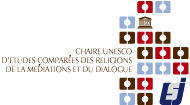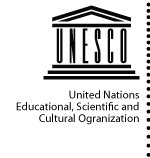 UNESCO launched the UNITWIN/UNESCO Chairs Programme in 1991 as an international action plan for academic solidarity to strengthen inter-university co-operation with particular emphasis on support to higher education in the developing countries. The UNITWIN network on Interreligious studies  |
e-mail: unesco@spbric.org |
PARTNERS UNESCO Chair in Comparative Religious Studies (592), established in 2002 at Saint-Joseph University, (Lebanon) PARTNERSHIPSCollege of Arts and Sciences at the University of Oregon. Oregon Humanities Center Center Leo Apostel (CLEA), Brussels Free University (Brussels, Belgium)  Center for XX Century Studies, Milwaukee University, Milwaukee (Wisconsin, USA) European Society for Study of Science and Theology (ESSSAT) - Lund university, Department of Theology and Religious Studies (Lund, Sweden) The Elijah School for the Study of the Wisdom of the World Religions (Jerusalem, Izrael)  |
 |
UNESCO CHAIR IN COMPARATIVE STUDIES
The Saint-Petersburg Branch of the Russian Institute of Cultural Research |
|||
Loading
|
Русская версия |
